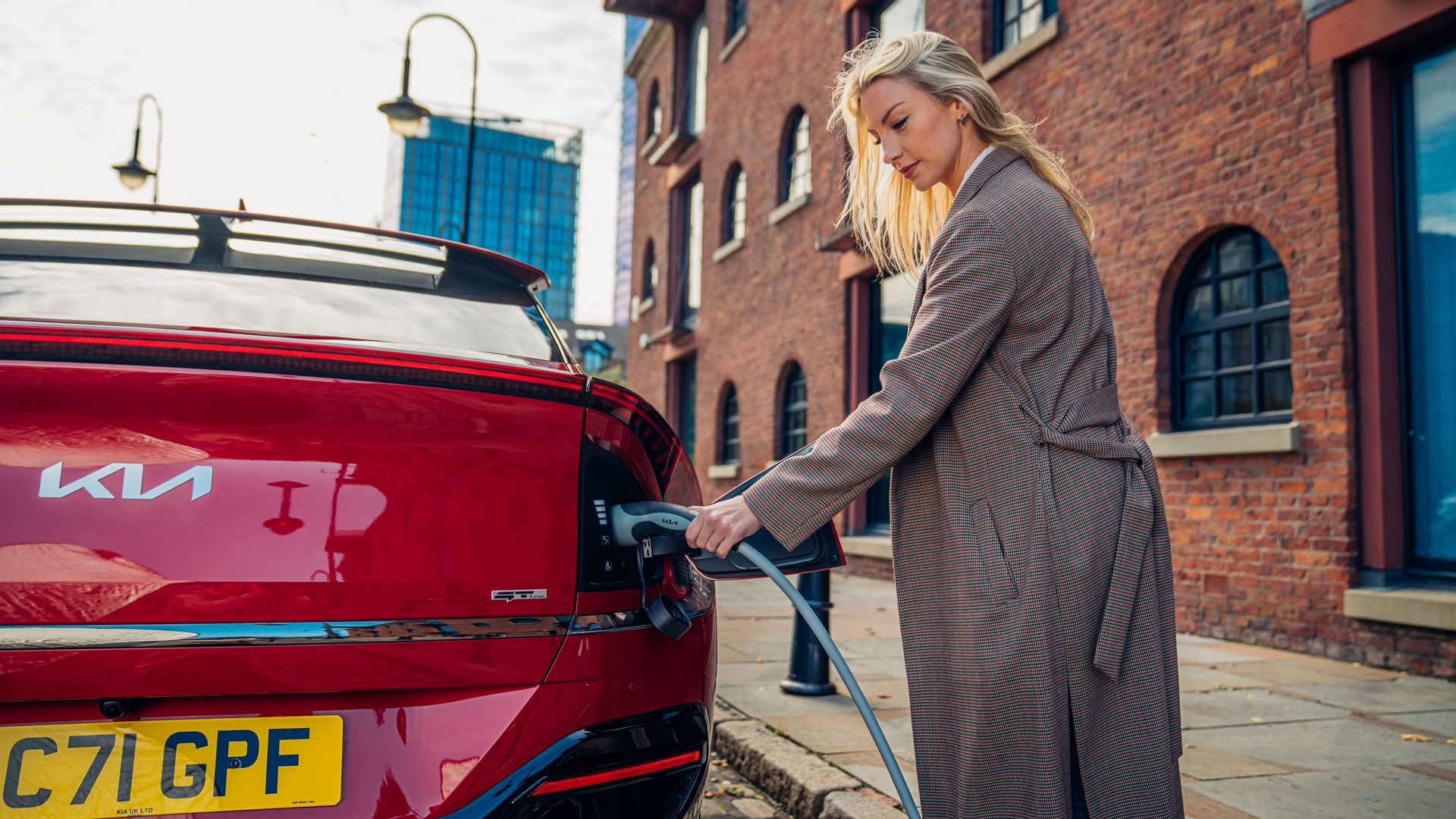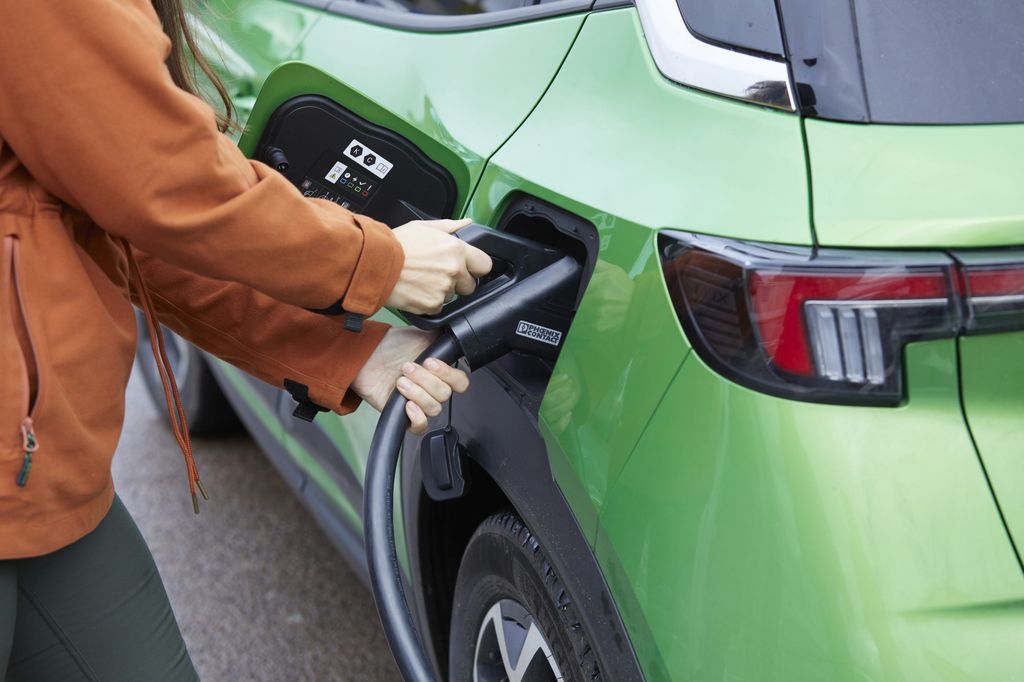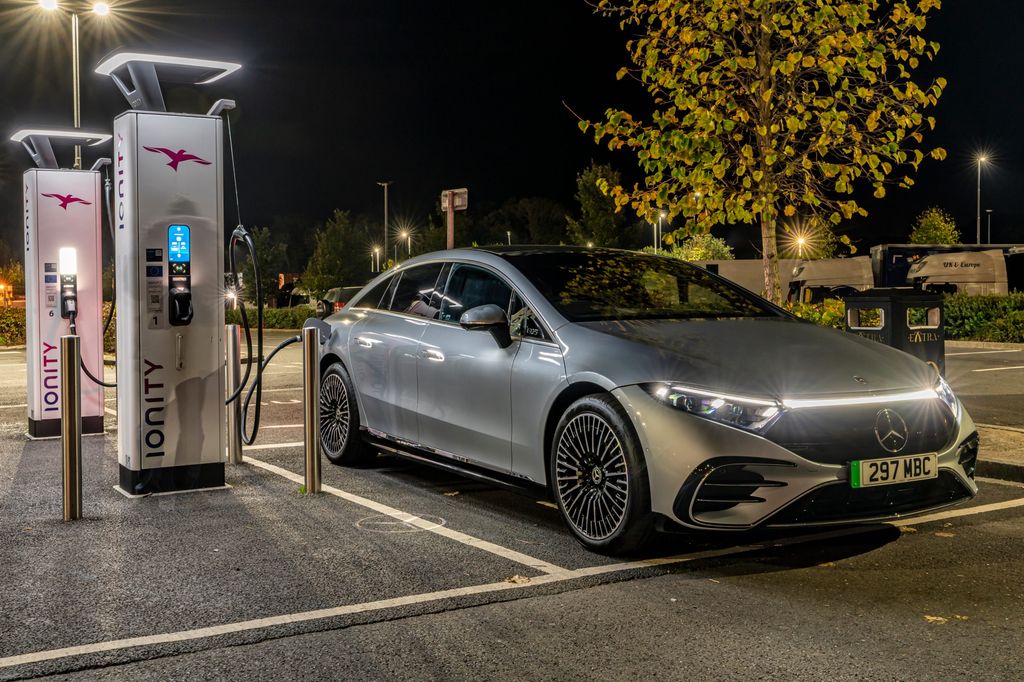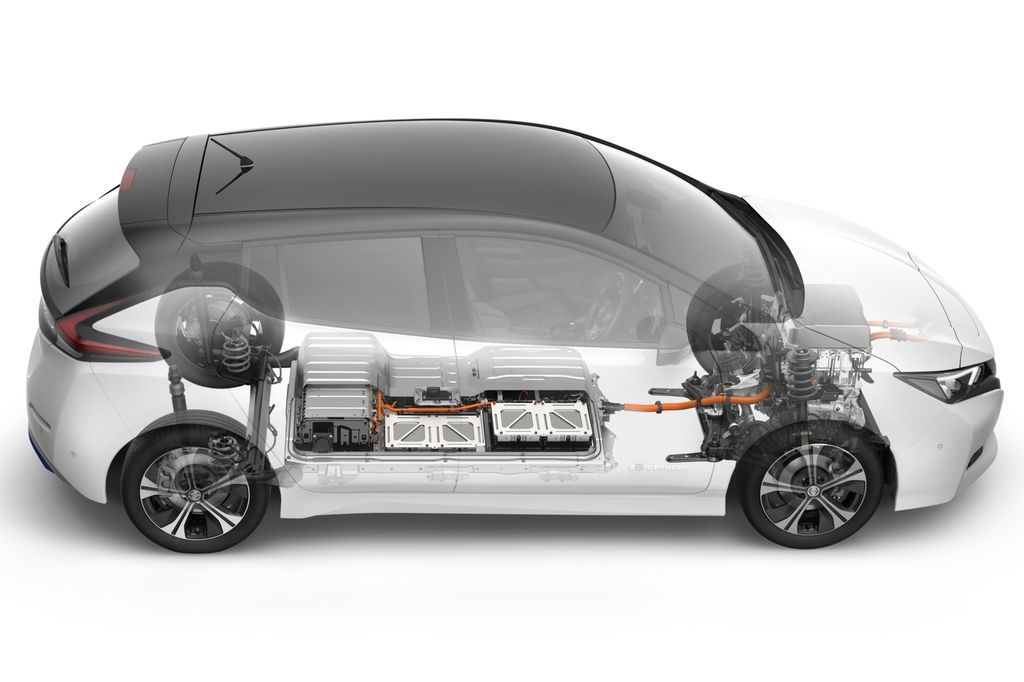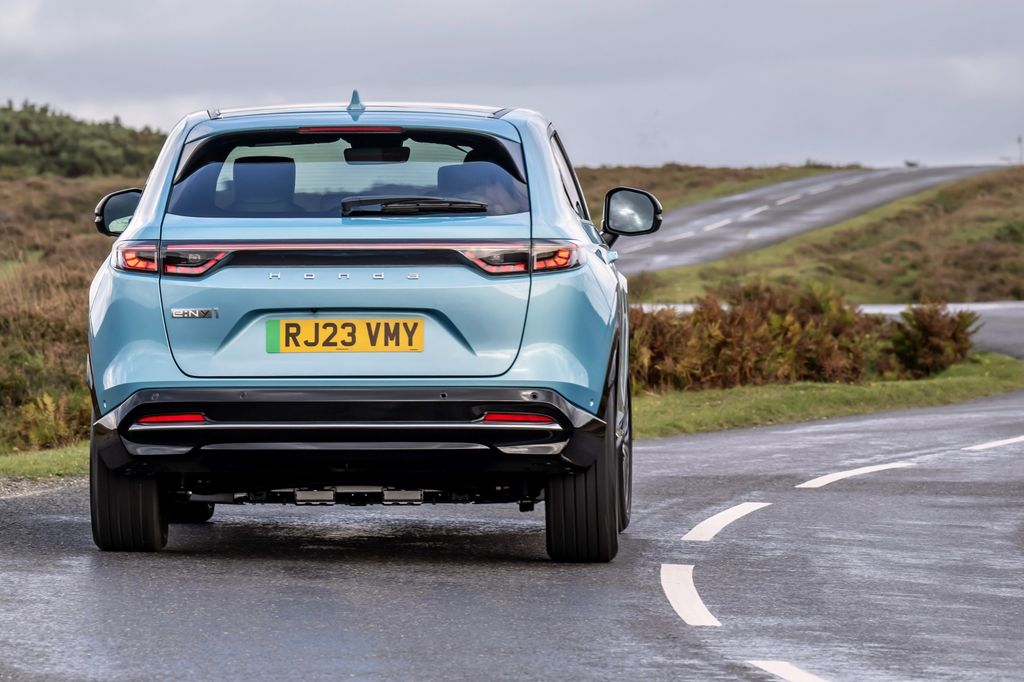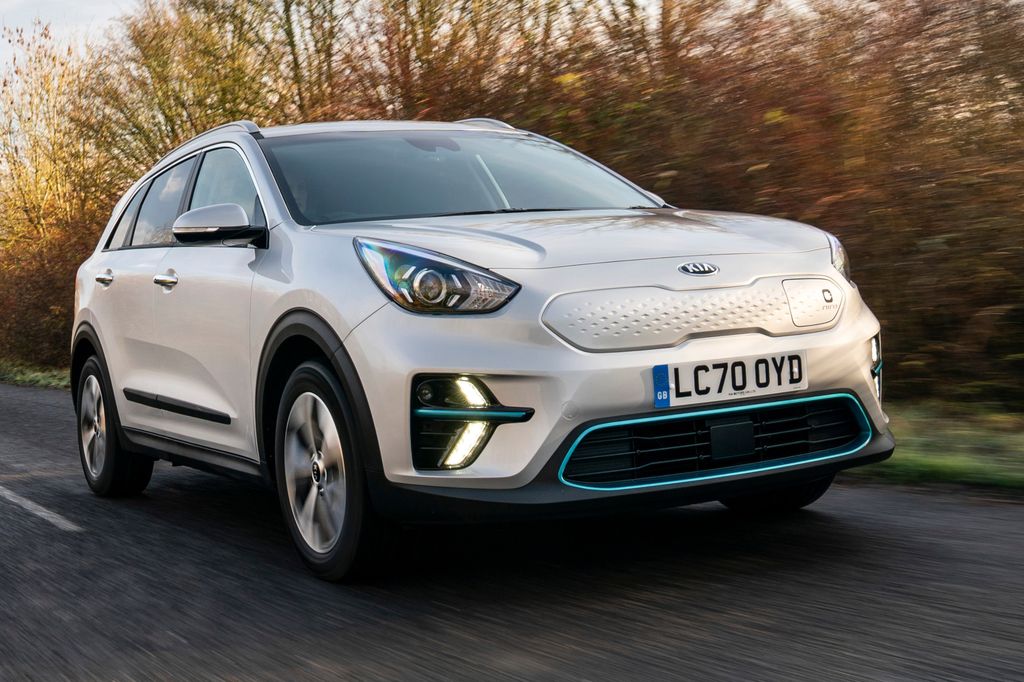Electric vehicles are now a common sight on our roads and they are playing a vital role in tackling air pollution and climate change. EVs may have a higher upfront cost, but they can be considerably cheaper to run in the long term.
Most car manufacturers are now making electric cars, there's more choice than ever, and some of the coolest new models are EVs. If you're thinking of switching to an electric vehicle, this guide will answer some of your most common questions.
When was the first electric car made?
Unless you delve into the history books, you might be forgiven for thinking the first electric car was a Tesla, or maybe a Nissan Leaf. The reality is that electric vehicles (EVs) have existed in one form or another since the 1800s. One of the first mass-produced electric cars was produced by British inventor Thomas Parker in 1881. The end of the 19th Century was a golden period for electric vehicles, including the first Ferdinand Porsche-designed car - the 1898 Egger-Lohner electric C.2 Phaeton.
Everything changed in the early 1900s when Henry Ford started the mass production of the Model T petrol car, which was cheaper to build and far more affordable to buy. As concerns over the environment and fuel prices rose in the 1980s, hybrid petrol cars with small batteries began to gain traction, spearheaded by the Toyota Prius. Then in 2008, the automotive world was shaken to its core when Elon Musk's Tesla launched its first electric car, the Roadster. The big brands have been playing catch up ever since.
Are EVs cheaper to run?
An electric car can cost as little as a third to run per mile as a petrol or diesel vehicle, depending on whether you recharge from home (cheapest) or use a public charger. Broadly speaking, the slower the charge, the cheaper and more affordable it will be. There are also fewer moving parts so there's less to go wrong in an EV compared to a petrol or diesel car. Electric cars currently qualify for free road tax, but this will change in 2025 when VED charges will be introduced for the first time for EVs. Business users can make considerable savings by switching to an EV because there are generous tax benefits. There are many perks to owning an EV and one of them is the financial benefit you get from a number of exemptions. For instance, electric vehicles are exempt from the London Congestion Charge. Additionally, you won't be charged for entry into other clean air zones being set up across the UK. In some areas, EV drivers can also benefit from free parking and free parking permits.
DISCOVER: The ultimate guide to car tax - from exemptions to how to pay
How much does it cost to charge an electric car?
It costs around 15-20p per mile to run a conventional petrol or diesel car. Recharging your electric car can cost as little as 3p per mile for home charging, around 12p per mile if you use lamppost chargers and about 18p per mile for rapid public charging at locations such as motorway service stations. Ultimately the price you pay will depend on whether you have off-street parking (in which case you can have a home charger), or you rely on public chargers. Also, tariff prices vary between domestic electricity providers, while EV charging companies have different rates.
How long does it take to charge an electric car?
Or how long is a piece of string? EVs can take as little as 18 minutes or as long as 48 hours to charge up. The charge speed will depend on the size of the battery, the connection speed (it can vary from 3.7 kiloWatts to 350kW) and the maximum charging rate of vehicle. It can take longer to charge an electric car during colder weather because lithium-ion batteries are highly sensitive to temperature.
How long do electric car batteries last?
Most new electric vehicles come with an eight-year/100.000-mile battery warranty. EV batteries are generally expected to retain 70% to 80% of their capacity over 10 years. So, unless you're planning to keep your electric car for 15-20 years or so, battery degradation should not pose a problem for you. Just like a smartphone's lithium-ion battery, the lifespan of an EV battery will depend on a number of factors, including the method of charging (fast or slow), the number of charge cycles and mileage covered.
DISCOVER: 11 ways to stop your car from being stolen
Are electric cars more expensive to insure?
In a word - yes. Insurance costs have risen across the board recently, but electric car premiums seem to have been hit harder. There are many reasons, but one of the biggest ones is that EVs tend to be higher value, which means that insurers assume repair parts or fully replacing the car will cost them more. Also, traditionally younger drivers have chosen cheaper, older, slower, smaller-engined cars. However, EVs are more expensive, newer, more powerful and faster, which means that they are at a higher risk of being involved in an accident. EVs are also built with advanced technology and parts, meaning they're more expensive to repair or replace in the event of a claim. Some EVs take longer to fix too, with the high cost of repairing and replacing batteries meaning they are more commonly written off. The good news is that as electric vehicles become more popular, insurance cover should get more competitive.
What is the range of an electric car?
Most modern EVs have claimed ranges of 130-300 miles, and some are as high as 400+ miles. The range of an electric vehicle in real-world conditions is rarely close to what's achieved during testing, under the Worldwide Harmonised Light Vehicle Test Procedure (WLTP). As a rough guide, the actual range of an electric is around 15-20% less than the official figure. The real-world range you achieve in an EV will depend on various factors. So a smooth driving style, keeping to speed limits, switching off air conditioning, warm weather and keeping your tyres inflated correctly will all help to maximise range.
Are electric cars more reliable?
In theory, EVs are more reliable than their ICE (Internal Combustion Engine) counterparts because they have fewer moving parts, no fluids to replace (other than windscreen wash) and they are not so hard on components such as brakes. However, because electric cars are packed with advanced technology, software glitches are not uncommon, so infotainment systems, digital instrument panels and driver assistance systems can give owners the biggest headaches.
Can you buy a second-hand EV?
Yes, the second-hand market for electric cars is booming - a reflection of the surging sales of new EVs. Britain’s millionth EV hit the road in January 2024, according to the Society of Motor Manufacturers and Traders (SMMT). A 10-year-old Nissan Leaf can be bought from just £2,500, but it may have as little as 50 miles of range left. A safer bet might be a practical Kia e-Niro (2019-2022). When new, it came with a 282-mile range and used examples are priced from £15,000. What's more, it came with a seven-year warranty, so buyers end up with some peace of mind because there could be a few years' warranty left. Ultimately, as with any second-hand car, you get what you pay for and you should do your research. Newer models that have been well cared for, with a lower mileage and full service history, are the ones to go for.
Why are electric cars so expensive?
EVs have a higher upfront cost than conventional petrol and diesel cars for many reasons. Top of the list is the battery - the most expensive component of an electric car. At the moment, EV batteries are still relatively expensive to produce because they rely on a cocktail of raw materials, including aluminium, copper, iron, cobalt, nickel, manganese, graphite and lithium, which all have to be extracted from the earth. In order to meet the demand for longer ranges, batteries are now bigger than they were, which adds to the cost. EVs also tend to be packed with the latest technology, which again comes at a price. The good news is that as the number of new electric vehicles increases and car producers get better at making them, costs are likely to fall. More choice will increase competition between manufacturers too, again driving down prices. In 2024 alone, Dacia will be bringing Europe’s most affordable electric car to the UK. The five-door 'Spring' supermini is already a common sight in France, where it retails for less than £20,000. Citroen will also join the battle at the budget end of the EV market with the e-C3.
INSPIRATION: 13 brand new cars to celebrate the '24' number plate
